 SNRI antidepressants: Know the risks
SNRI antidepressants: Know the risks
Spring Poisoning Prevention
Poison Prevention Tips
- Be prepared.
- Put the poison control number (1-800-222-1222, U.S. only) in, on or near your phone.
- Save webPOISONCONTROL® as a browser favorite (webPOISONCONTROL.org).
- Spring Forward! Change the batteries in your carbon monoxide alarms when you set your clocks forward. Keep appliances, furnaces, fireplaces and wood-burning stoves in good repair.
- Spring cleaning means dangerously strong chemicals may be within reach.
- Read and follow the directions on the product label.
- Turn on fans and open windows.
- Be especially careful with oven cleaners, drain openers, toilet bowl cleaners and rust removers. These caustics burn on skin or eye contact and are among the most dangerous products found in homes. Always keep them away from children – up high and locked away!
- Don’t mix cleaning products unless the label directs you to. Toxic gases may form. Never mix bleach with a cleaner that contains ammonia (generates chloramine gas) or a cleaner that contains an acid (generates chlorine gas).
- Store products in their original containers. The transfer of cleaners, pesticides or auto fluids to food or soda containers has caused some of the most serious poisonings in unsuspecting victims.
Poisoned? Get Expert Help.
Don't guess what you should do. Get accurate Poison Control answers online or by phone. Both are free and confidential.
or CALL 1-800-222-1222
Get the App!
Download the freewebPOISONCONTROL® app.
Subscribe to The Poison Post®
The Poison Post® is a free, quarterly e-newsletter delivering poison prevention tips right to your inbox!
Learn the Poison Prevention Jingles
Learn the Poison Help jingle in English or Spanish. Use these jingles to teach the Poison Control number: 1-800-222-1222. Available for download.
Poison Statistics
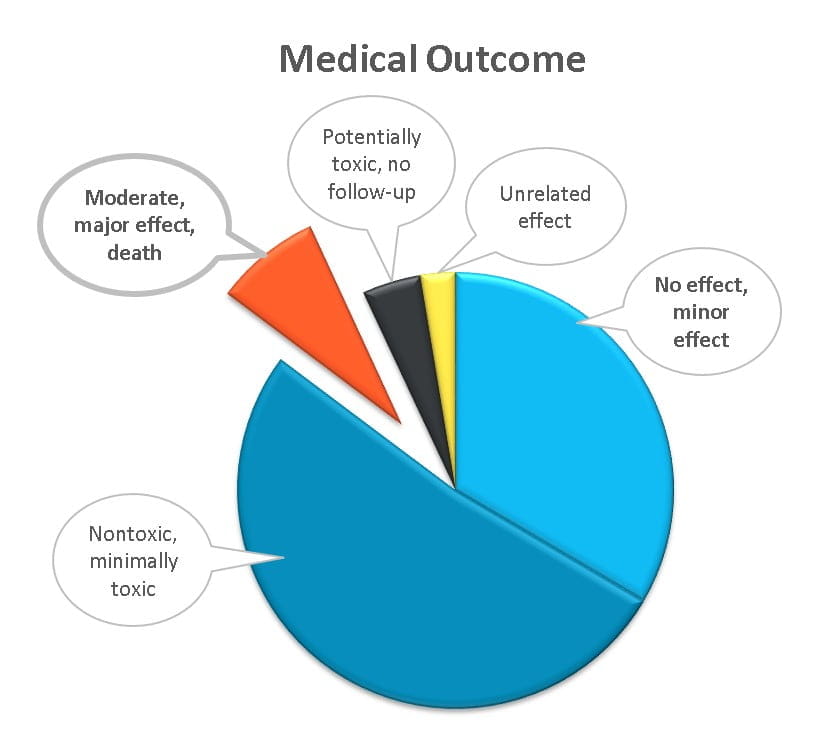

 Are Holi Colors Safe?
Are Holi Colors Safe?
 Milkweed plant can cause serious poisoning
Milkweed plant can cause serious poisoning
 Azaleas and Rhododendrons: "Mad Honey" and Other Surprising Dangers
Azaleas and Rhododendrons: "Mad Honey" and Other Surprising Dangers
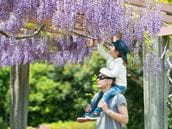 Virginia Creeper and Wisteria: Pretty But Poisonous
Virginia Creeper and Wisteria: Pretty But Poisonous
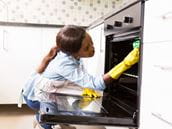 Using Oven Cleaners Safely
Using Oven Cleaners Safely
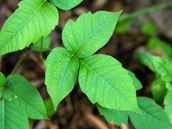 Poison Ivy: Diagnosis, Treatment, and When to Seek Help
Poison Ivy: Diagnosis, Treatment, and When to Seek Help
 Rattlesnake Bites: What You Need to Know
Rattlesnake Bites: What You Need to Know
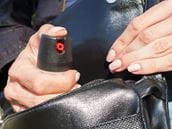 How Dangerous is Pepper Spray?
How Dangerous is Pepper Spray?
 Is Bubble Solution Toxic?
Is Bubble Solution Toxic?
 How Venomous are Cottonmouth Snakes?
How Venomous are Cottonmouth Snakes?
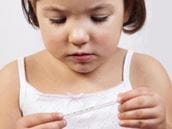 Mercury Poisoning: Symptoms, Treatment, and More
Mercury Poisoning: Symptoms, Treatment, and More
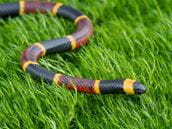 Are Coral Snakes Poisonous?
Are Coral Snakes Poisonous?
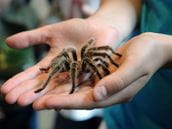 Are Tarantulas Dangerous?
Are Tarantulas Dangerous?
 Everything You Need to Know About Snakebites
Everything You Need to Know About Snakebites
 Are Copperhead Snakes Venomous?
Are Copperhead Snakes Venomous?
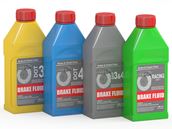 Brake Fluid: A Sweet Poison
Brake Fluid: A Sweet Poison
 Are Cherry Pits Really Poisonous?
Are Cherry Pits Really Poisonous?
 The Hidden Danger of Foxtail Grass
The Hidden Danger of Foxtail Grass
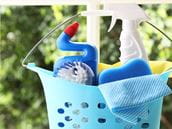 Top Tips for a Safe Spring Cleaning
Top Tips for a Safe Spring Cleaning
 Singulair (Montelukast): Side Effects, Interactions, and Overdose
Singulair (Montelukast): Side Effects, Interactions, and Overdose
 Benadryl: Side Effects, Interactions, and Overdose
Benadryl: Side Effects, Interactions, and Overdose
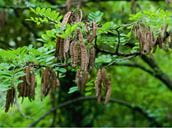 Are Black Locust Trees Toxic?
Are Black Locust Trees Toxic?
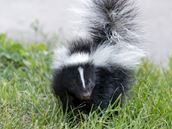 What Happens If A Skunk Sprays Me?
What Happens If A Skunk Sprays Me?
 Are Itch Mite Bites Dangerous?
Are Itch Mite Bites Dangerous?
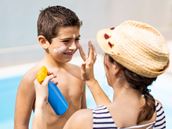 Can Sunscreen Cause A Sunburn?
Can Sunscreen Cause A Sunburn?
 What to Know About California Poppy Products
What to Know About California Poppy Products
 Store Medicine Safely
Store Medicine Safely
 Liquid Nitrogen Can Cause Severe Burns
Liquid Nitrogen Can Cause Severe Burns
 Poisoning from Frogs, Newts, Toads, and Salamanders
Poisoning from Frogs, Newts, Toads, and Salamanders
 Bird of Paradise: Is it Toxic?
Bird of Paradise: Is it Toxic?
 Stringray Injuries: Prevention and Treatment
Stringray Injuries: Prevention and Treatment
 An Introduction to Common Tick-borne Diseases
An Introduction to Common Tick-borne Diseases
 Tulip Bulb Toxicity
Tulip Bulb Toxicity
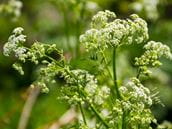 Can Poison Hemlock Be Deadly?
Can Poison Hemlock Be Deadly?
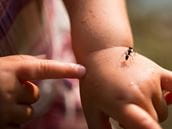 Stung by an Ant?
Stung by an Ant?
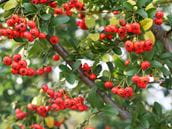 Are Pyracantha Berries Poisonous?
Are Pyracantha Berries Poisonous?
 Are Water Purifying Chemicals Safe?
Are Water Purifying Chemicals Safe?
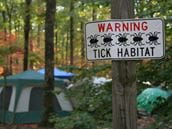 Treating Tick Bites
Treating Tick Bites
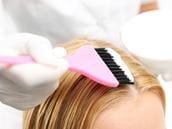 Concerns about hair dye: Prevent injuries and allergic reactions
Concerns about hair dye: Prevent injuries and allergic reactions
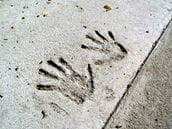 Don't Get Burned by Cement
Don't Get Burned by Cement
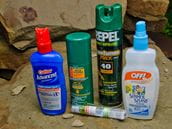 Insect Repellents
Insect Repellents
 Daffodils: Beautiful But Potentially Toxic
Daffodils: Beautiful But Potentially Toxic
 Foxglove - Toxic to the Heart
Foxglove - Toxic to the Heart
 Poisonous and Non-Poisonous Plants
Poisonous and Non-Poisonous Plants
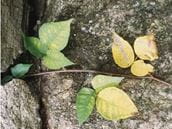 Poison Ivy, Poison Oak and Poison Sumac
Poison Ivy, Poison Oak and Poison Sumac
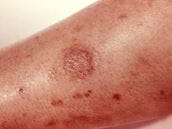 Brown Recluse Spider Bites
Brown Recluse Spider Bites
 Easter Lilies and Cats: A Dangerous Combination
Easter Lilies and Cats: A Dangerous Combination
 True Stories for Springtime
True Stories for Springtime
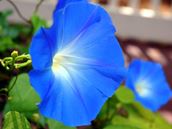 Are Morning Glories Poisonous?
Are Morning Glories Poisonous?
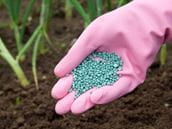 Lawn Chemicals
Lawn Chemicals
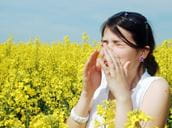 Safe Use of Antihistamines
Safe Use of Antihistamines
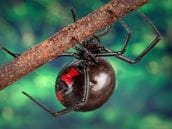 Black Widow Spider Bites Can Be Dangerous
Black Widow Spider Bites Can Be Dangerous
 Cocoa Bean Mulch Can Poison Dogs
Cocoa Bean Mulch Can Poison Dogs
 Lyme Disease
Lyme Disease
 Children and Spray Bottles: A Hazard
Children and Spray Bottles: A Hazard

